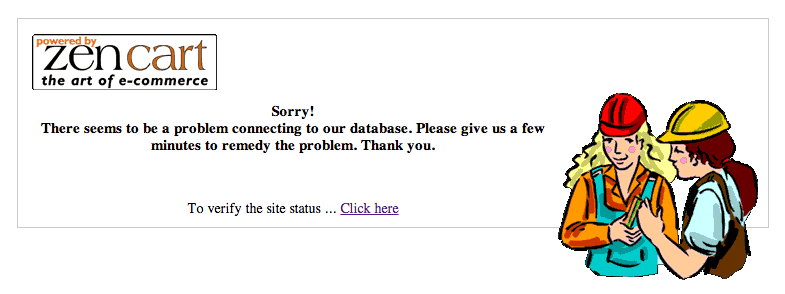 We get asked fairly often by small business clients to help them set up a full-featured e-commerce system on their web server, typically the same one that houses their website and email. They want their customers to log in, maintain an account, add products to their cart and check out. Simple enough.
We get asked fairly often by small business clients to help them set up a full-featured e-commerce system on their web server, typically the same one that houses their website and email. They want their customers to log in, maintain an account, add products to their cart and check out. Simple enough.We usually tell them no.
Now, I hate to tell people no, especially when they're trying to give me money. But unless you're willing to make a significant investment in the proper server resources and software, running your own online storefront is more trouble than it's worth.
Instead of installing Zen Cart, OS Commerce or Magento, we point clients with smaller budgets to enterprise quality, remotely hosted services like Shopify, Big Cartel or even Amazon.com.
The upsides of not hosting your own e-commerce solution are numerous for small businesses.
- Smaller up front costs
- Multiple, integrated payment options
- Consumer-friendly administration
- Frequent feature and security updates
The downsides exist too; but in most cases these are easily offset by the convenience of using an existing service. Common downsides include:
- Monthly fee for the storefront
- Not being able to tailor every aspect of the purchasing process
Depending on your exact situation, there may be other things to consider. If you have specific needs like integration with your warehouse inventory system, for example, installing your own e-commerce system may be an unavoidable necessity.
But for most small businesses, going with a trusted partner is the best-case scenario. Let me give you an example of why.
A large Florida beverage store was offering a special release of a highly sought-after craft beer. They successfully promoted the event on their website and social media channels and generated a good deal of advance buzz. The online sale was timed for 4PM on a Friday and coincided with a live Q&A from the brewer on Twitter.
Four o'clock hit, and their website promptly went down. Instead of getting a friendly welcome and easy check out experience, visitors saw this:

This is embarrassing and unprofessional on a normal day; but on a special, much-hyped release day with the creator of the product on hand? That's a serious blow to credibility.
Twitter was predictably unkind.
It was easy to understand why the site went down. There were too many database connections for their economy-level web server to handle. Laughably, the company even mentioned how many people it took for their site to go down on Twitter. 300. Only 300.
If you don't have a technical staff on hand or direct access to your hosting company with a dedicated service level, you are helpless in this situation. Your site will stay down until enough people give up and walk away. If you've done a good job with promotion, that may take awhile.
For more than an hour after the on-sale in my example, the site was still completely inaccessible. Suddenly, it popped back up with the message: SOLD OUT. Thanks for crashing our website!
They obviously didn't get it. Having a crashed website isn't a success. Having happy customers is a success.
If you're looking for recommendations on how e-commerce can help your small business, we can get you started in the right direction with a tailored road map that will ensure your success during the early start up days, through the highest of server loads. Let's talk.
